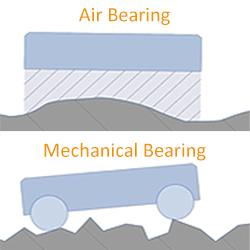Automating the plastics industry
It is the task of robot manufacturers to better inform the marketplace that automation can enhance their productivity and efficiency, while remaining competitive. For the plastics and injection moulding market, investing in automation certainly doesn’t automatically lead to the depletion of a human workforce. Instead, robots should be seen as a means to do more with the equipment plastics manufacturers currently have.
One of the biggest challenges for robotics manufacturers is the perception that the technology is here to take the jobs of humans - but that is simply not the case. Unfortunately, the notion that automation poses a threat to jobs often overshadows the potential benefits of investing in the technology. Here, TM Robotics founder and CEO, Nigel Smith, explains how robot technology is impacting the plastics and injection moulding market.
It is the task of robot manufacturers to better inform the marketplace that automation can enhance their productivity and efficiency, while remaining competitive. For the plastics and injection moulding market, investing in automation certainly doesn't automatically lead to the depletion of a human workforce. Instead, robots should be seen as a means to do more with the equipment plastics manufacturers currently have.
Consider this as an example.
In the past, most end users opted for a classic Cartesian X-Y gantry-style robot to unload parts from a moulding machine. Today, the technology is available to improve and add to this basic operation. By using a ceiling-mounted six-axis robot, for example, taking a product from the moulding machine, there is an opportunity to do more work with the specific part you are taking out. While doing this process, the robot allows you to inspect, assemble or pack the product.
TM Robotics has recently expanded its six-axis robot range, which includes the introduction of the TVM six-axis range, a machine that has been designed to meet the growing demand for this type of automation. The machine's lager payload and longer reach enables TM Robotics to offer a solution for the unloading and loading of larger machines in the plastics sector, like integration of larger injection moulding machines, of which Toshiba Machine is a market leader.
Ceiling mounted robots are also a growing area for this marketplace. They are particularly advantageous because they minimise the space required. If you have a ceiling-mounted SCARA, for instance, you can use it in a much tighter, compact area than you could if it were floor-mounted. From an efficiency point of view, if you have the robot mounted over a conveyor, you can use a smaller and quicker robot, again increasing productivity.
SCARA robots have been particularly successful in the plastics industry as a means to unload the moulding machine. TM Robotics has recently assisted in the launch of Toshiba Machine's latest SCARA model to the market, the THE400 SCARA.
Automation can be a big investment, so it is no surprise that the marketplace wants to make sure it gets more bang for its buck, so to speak. However, the cost of automation is quickly becoming more competitive. Customers in the plastics industry want to see more dexterity in their robots. They want to use the robot for inspection, take the part from the moulding machine, pick up the part, show it to the vision camera and, if it is good, move it downstream.
At TM Robotics, we want to ensure the marketplace understands these potential benefits. Robots should be seen as a job saver, not a job taker. It is our role to ensure that the productivity, efficiency and economic advantages of automation are clear.
Featured Product

